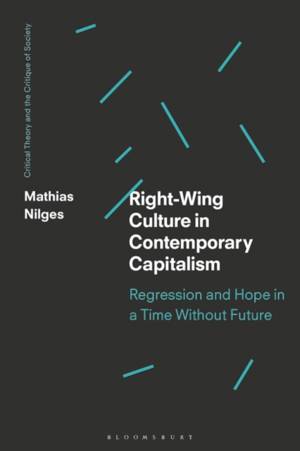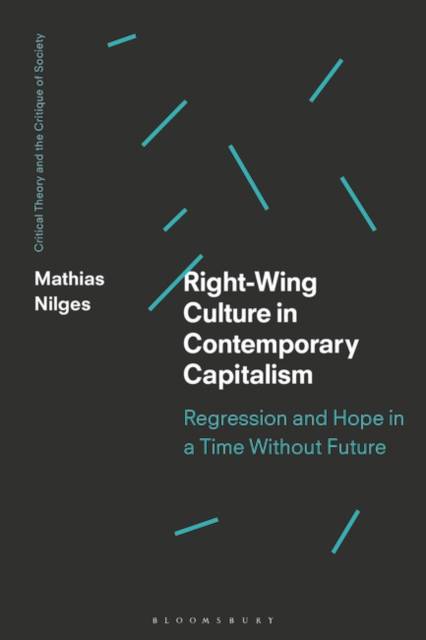
- Retrait gratuit dans votre magasin Club
- 7.000.000 titres dans notre catalogue
- Payer en toute sécurité
- Toujours un magasin près de chez vous
- Retrait gratuit dans votre magasin Club
- 7.000.0000 titres dans notre catalogue
- Payer en toute sécurité
- Toujours un magasin près de chez vous
Right-Wing Culture in Contemporary Capitalism
Regression and Hope in a Time Without Future
Mathias NilgesDescription
Commentators across the political spectrum have argued that the future has been absorbed by an ever-expanding present to which we cannot imagine alternatives. The notion that we have lost the ability to imagine change-culturally, socially, and politically-has become one of the defining problems of our time. But what is the difference between the populist narratives of those who promise to solve this problem by returning us to a glorious past and those who promise to lead us into a glorious future? Often, this book argues, not very much at all. Revealing neo-authoritarianism and capitalist hyper-innovation as two sides of the same coin, Mathias Nilges shows that today's reactionaries and futurists both harness and profit from the same temporal crises of our present.
Looking to design, popular culture, literature, and recent theoretical and political discussions, Nilges offers ways of understanding the re-emergence of familiar and disturbing forms of right-wing politics and culture (authoritarianism, paternalism, fascism) not as historical repetition but as dangerous consequences of the contradictions of capitalism today. Using critical theory, in particular the work of Ernst Bloch, this book recovers a politics and culture of hope, which it locates beyond a future that is colonized by capitalism and a past that becomes the mystical playground for the new Right: in that which was never allowed to be and thus demands realization.Spécifications
Parties prenantes
- Auteur(s) :
- Editeur:
Contenu
- Nombre de pages :
- 216
- Langue:
- Anglais
- Collection :
- Tome:
- n° 1
Caractéristiques
- EAN:
- 9781350074064
- Date de parution :
- 12-12-19
- Format:
- Livre relié
- Format numérique:
- Genaaid
- Dimensions :
- 160 mm x 236 mm
- Poids :
- 476 g

Les avis
Nous publions uniquement les avis qui respectent les conditions requises. Consultez nos conditions pour les avis.






